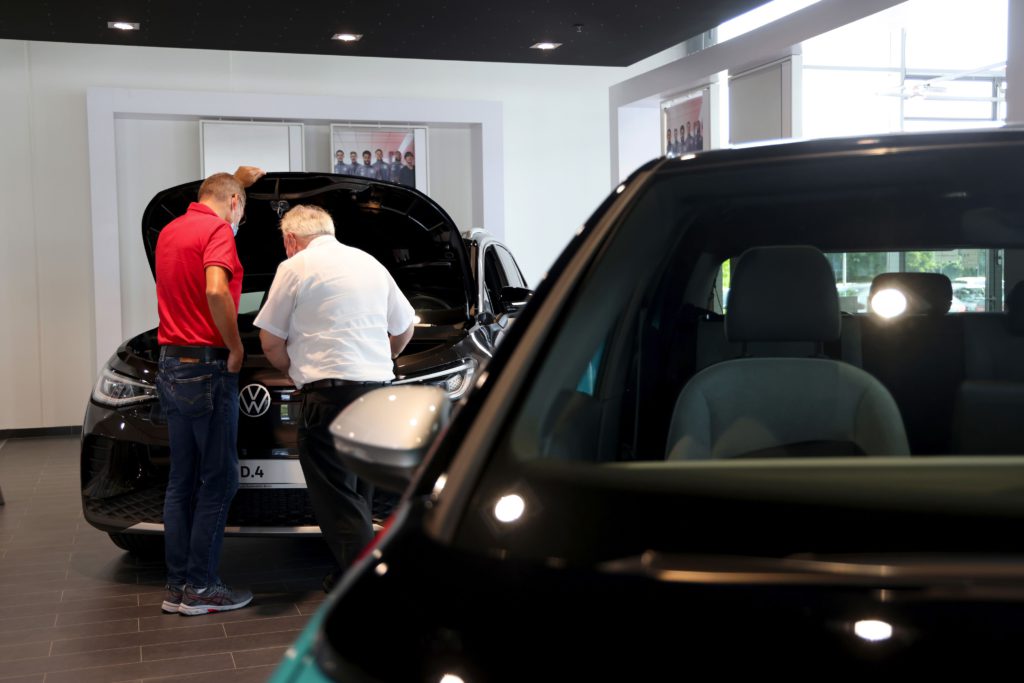(Bloomberg) —
Automakers logged their worst September sales in Europe in more than a quarter century, putting the industry on course to come up short of last year’s disastrous showing.
New-car registrations plummeted 25% to 972,723, the lowest for the month since 1995, the European Automobile Manufacturers’ Association said Friday. The lobby group largely attributes the drop to the semiconductor shortage, which worsened when Covid-19 outbreaks idled chip packaging and testing facilities in Southeast Asia.
After three consecutive declines, sales in Europe have fallen in more months than they’ve risen this year. While contraction was unthinkable in early 2021 — the ACEA predicted roughly 10% growth for the year — some market researchers are now expecting it.
“We currently forecast that this year will not eclipse the desperately weak 2020 result,” LMC Automotive said in a report. “Our assumption is that sourcing issues will be with us throughout next year and continue to undermine the connection between positive underlying demand drivers and new-vehicle sales.”
Carmakers have managed supply crises by prioritizing their most lucrative models and paring their spending on marketing and incentives, buoying profit margins. BMW AG earlier this month raised its projection for annual returns from automaking to 9.5% to 10.5%, up from 7% to 9%.
Suppliers haven’t been as fortunate. Companies that have cut their earnings guidance in recent weeks include France’s Faurecia SA, Germany’s Hella GmbH & Co. and U.S.-listed Aptiv Plc. After months of battling component shortages alongside high commodity prices and shipping constraints, manufacturers face more disruptions, according to Fitch Ratings.
“We only expect semiconductor supplies to start showing signs of improvement from” the second half of next year onwards, the credit rater said in a report. “However, there will still be a shortage to some extent until mid-2023.
Europe’s largest economies are also suffering. Germany’s leading research institutes lowered their joint forecast for growth this year to just 2.4%, from 3.7%, citing supply logjams that will hinder the nation’s recovery into next year. The U.K. expanded slower than expected in August after a surprise contraction in July.
Daimler AG had the worst showing among major European automakers last month, with deliveries almost halving from a year ago. The company slashed its forecast for Mercedes-Benz sales in July, saying it expected them to be roughly in line with 2020 rather than up significantly.
Volkswagen AG and Stellantis NV, Europe’s two largest automakers, each delivered roughly 30% fewer vehicles last month than a year ago. Renault SA and BMW were each down about 24%.
All major markets recorded double-digit declines in September, with sales in the U.K. and Italy shrinking by roughly a third.
(Updates with analyst comment in sixth paragraph)
More stories like this are available on bloomberg.com
©2021 Bloomberg L.P.











